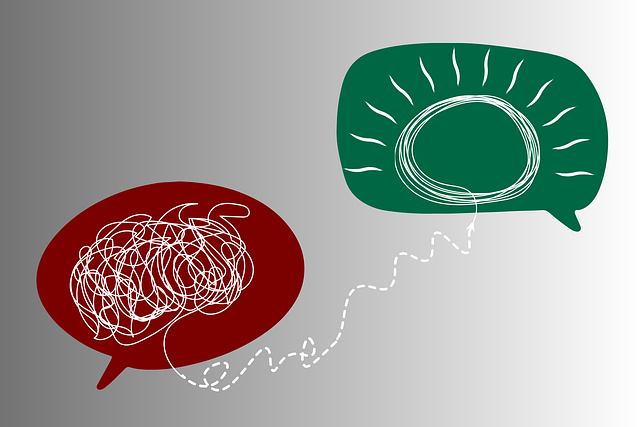Lakewood Eating Disorders Therapy offers a holistic approach to emotional well-being through the RFM framework, focusing on recovery from past traumas, cultivating flexibility in stress response, and mastering personal challenges. Using techniques like mindfulness meditation, self-care practices, and evidence-based methods, they help clients develop resilience, improve emotional regulation, and prevent burnout. Success is measured using standardized tools and client feedback, enabling continuous improvement and tailored care based on individual mental health needs.
At Lakewood Eating Disorders Therapy, we’ve pioneered innovative approaches to building resilience using the RFM (Resourcefulness, Flexibility, Mastery) model. This article delves into the strategic implementation of RFM-based exercises, highlighting their transformative impact on patient outcomes. We’ll explore how these exercises enhance coping mechanisms, promote healthy behaviors, and foster a sense of control, ultimately empowering individuals to overcome eating disorders. Discover practical strategies for measuring success and ensuring continuous improvement at Lakewood Eating Disorders Therapy.
- Understanding RFM and Its Role in Resilience Building
- Implementing Exercises for Enhanced Resilience at Lakewood Eating Disorders Therapy
- Measuring Success and Continuous Improvement Strategies
Understanding RFM and Its Role in Resilience Building

Resilience is a vital component of emotional well-being, enabling individuals to navigate life’s challenges with strength and adaptability. This is where RFM (Recovery, Flexibility, and Mastery) comes into play as a powerful framework for building resilience. Lakewood Eating Disorders Therapy recognizes the importance of these principles in fostering emotional resilience among their clients.
RFM focuses on three key areas: recovery from past traumas or struggles, cultivating flexibility in response to stressors, and mastering personal challenges. By implementing exercises that target these aspects, individuals can enhance their ability to cope with difficult situations, including burnout prevention. Self-care practices and emotional well-being promotion techniques are integral parts of this process, ensuring that clients develop sustainable strategies for a resilient and fulfilling life.
Implementing Exercises for Enhanced Resilience at Lakewood Eating Disorders Therapy

At Lakewood Eating Disorders Therapy, we understand that building resilience is a cornerstone of holistic healing. Our approach to implementing exercises for enhanced resilience focuses on empowering individuals to navigate life’s challenges with greater flexibility and strength. We’ve incorporated various techniques, such as mindfulness meditation, into our therapy sessions. This practice helps patients cultivate present-moment awareness, reducing reactivity to stressful situations. By fostering a sense of calm and clarity, mindfulness becomes a powerful tool in preventing burnout, especially for healthcare providers who often face high-stress environments.
Through structured resilience-building exercises, Lakewood Eating Disorders Therapy aims to equip individuals with coping strategies that extend beyond the therapy room. These exercises are tailored to help patients develop self-soothing mechanisms, improve emotional regulation, and foster a sense of control over their lives. By integrating these practices into daily routines, our clients build a deeper wellspring of resilience, making them better equipped to handle future challenges without resorting to unhealthy coping mechanisms.
Measuring Success and Continuous Improvement Strategies

Measuring success is a critical aspect of implementing resilience-building exercises, especially in the context of Lakewood Eating Disorders Therapy. It involves quantifying and qualifying improvements in clients’ emotional well-being and overall mental health. By utilizing robust Mental Health Policy Analysis and Advocacy methods, therapists can assess changes over time, ensuring that interventions are effective and aligned with the latest research. Regular evaluation allows for Continuous Improvement Strategies, enabling practitioners to adapt their approaches based on client outcomes. This iterative process fosters a dynamic therapy environment where techniques evolve to meet individual needs.
For instance, Emotional Well-being Promotion Techniques can be monitored through standardized questionnaires and qualitative feedback from clients. The data collected provides insights into the impact of resilience exercises, identifying areas of strength and weakness in the program. This information is invaluable for refining therapeutic practices, ensuring that the Lakewood Eating Disorders Therapy center stays at the forefront of evidence-based care while catering to the unique mental health needs of its clientele.
The implementation of RFM (Resilience, Flexibility, and Mindfulness) techniques and resilience-building exercises at Lakewood Eating Disorders Therapy has proven to be a game-changer. By integrating these strategies, the program has effectively enhanced clients’ ability to cope with challenges, fostering a sense of empowerment and improved overall well-being. As highlighted in this article, continuous measurement and adaptation of these methods are key to ensuring success. Moving forward, Lakewood Eating Disorders Therapy remains committed to refining its approach, utilizing RFM principles to offer a dynamic and effective treatment environment tailored to the unique needs of its clients.











